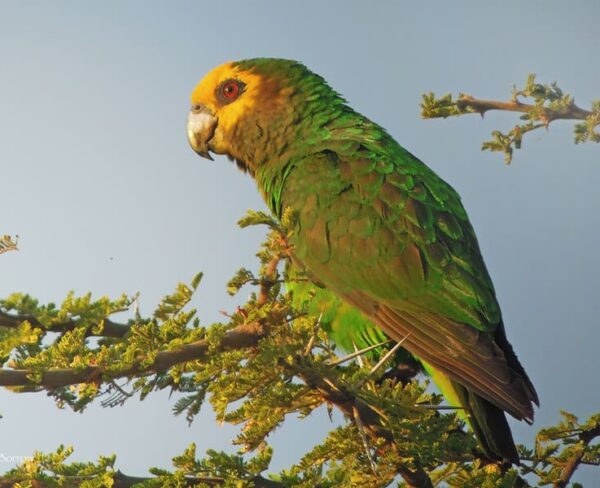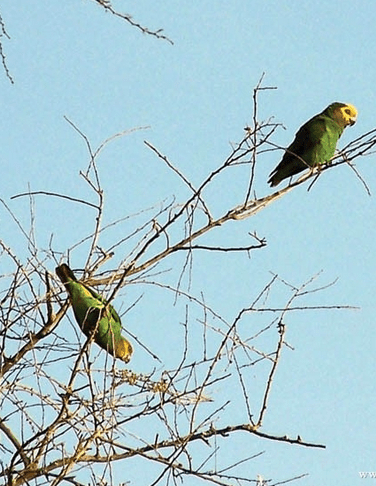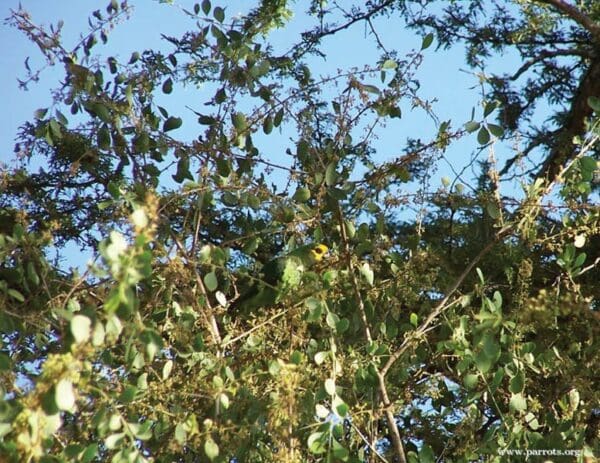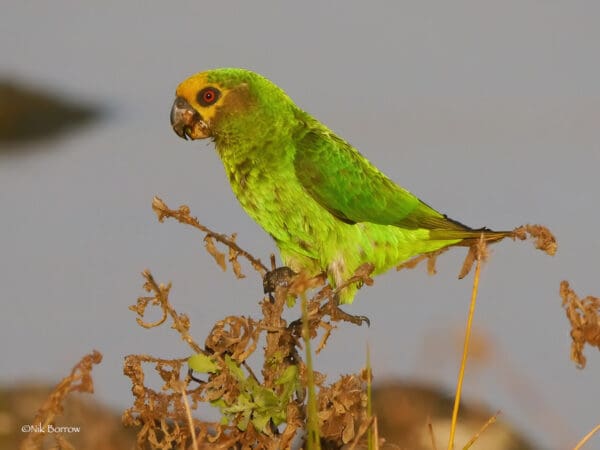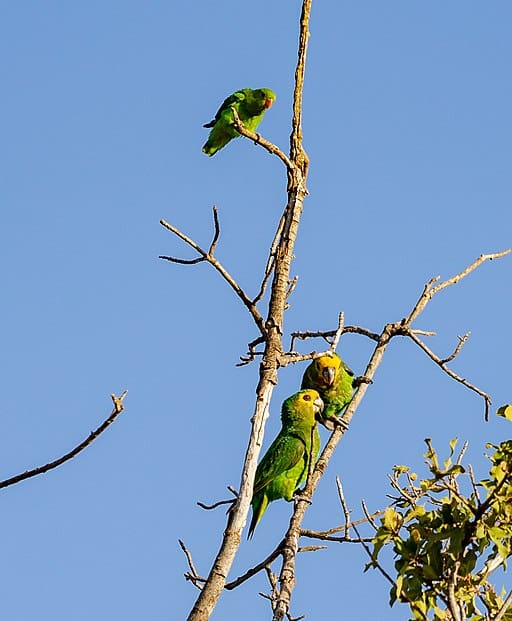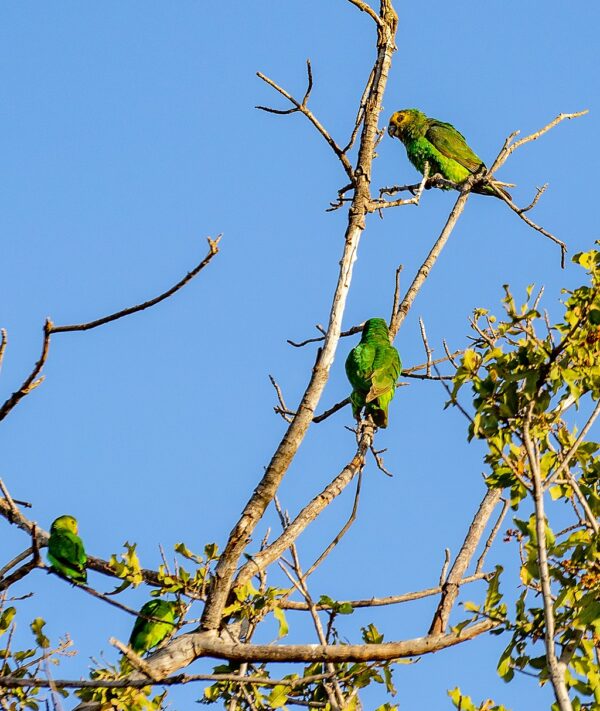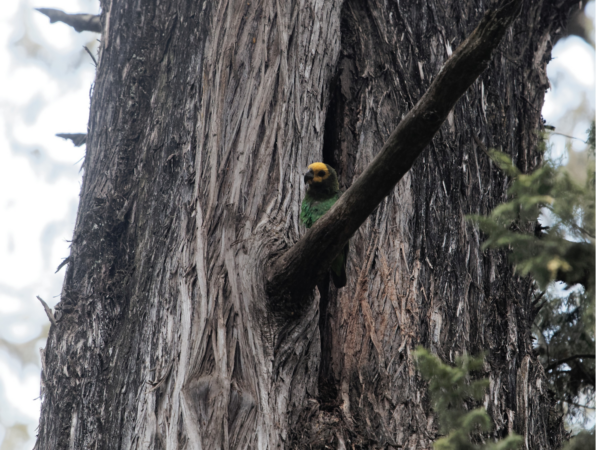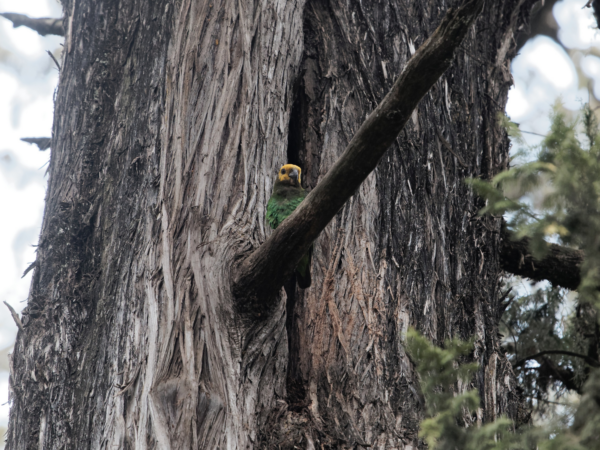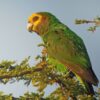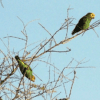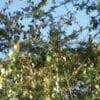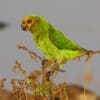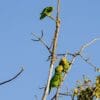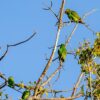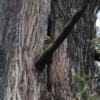Yellow-fronted Parrot
Also known as:
Yellow-faced Parrot, Shoa Parrot
Also known as:
Yellow-faced Parrot, Shoa Parrot
DID YOU KNOW?
Yellow-fronted Parrots are found up to 3000 m (9840 ft) in the highlands of Ethiopia.

Poicephalus

flavifrons
Size:
28 cm (11 in)
Weight:
140–205 g
Subspecies including nominate:
Possibly two: P.f. flavifrons, P.f. aurantiiceps
Colour Adult:
P.f. flavifrons: Medium sized parrot; mainly green plumage with bright yellow face and crown; tail olive/brown; thighs and carpal edge occasionally marked yellow; dark upper, pale lower mandible. Eye orange/red. Bare cere and eye ring grey.
P.f. aurantiiceps: As in flavifrons but face yellow washed with orange.
Colour Juvenile:
As in adult but face duller yellow/olive green. Eye brown.
More Information:
Content Sources:
CITES
BirdLife International
Cornell Lab of Ornithology/Birds of the World
A Guide to Parrots of the World, Juniper and Parr, 1998
Parrots of the World, Forshaw, 2006. 2010 edition
Captive Status:
Not found in captivity outside of Ethiopia at present.
Longevity:
—
Housing:
3 x 1 x 2 m (9.8 x 3.3 x 6.5 ft) enclosure with indoor access.
Diet:
Seed mix such as: millet, safflower, paddy rice, wheat, oats, buckwheat, canary grass seed, pine nuts (fresh); millet spray, dry or sprouted; limited sunflower, dry or sprouted; fruits such as: apple, pear, orange, cactus fruits, bananas, figs, mountain ash or rowan berries; vegetables such as: carrots, celery, corn on the cob, green beans and peas in the pod; greenfoods; vitamin supplements; complete kibble.
Enrichment:
—
Nest Box Size:
—
Clutch Size:
Not recorded.
Fledging Age:
—
Hatch Weight:
—
Peak Weight:
—
Weaning Weight:
—
World Population:
Unknown, described as common. Stable.
IUCN Red List Status:
Least Concern
CITES Listing:
Appendix II
Threat Summary:
Not globally threatened. Considered most abundant in the northern, higher parts of its range. Occurs in Abijata-Shala Lakes and Bale Mountains National Parks; elsewhere is considered a minor crop pest. May be exposed to increased risk of pest control towards other species.
Range:
P.f. flavifrons: Highlands of N Ethiopia, and areas around Addis Ababa in C Ethiopia.
P.f. aurantiiceps: Known only from Masango area and Gilo River, SW Ethiopia.
Habitat:
Found from 1800-3000 m (5904-9840 ft) in Juniperus and Podocarpus forests. Also found in woodlands in cultivated plateau country and in gallery forest in Acacia savanna.
Wild Diet:
Feeds on leaves, possibly seeds and fruits including Dovyalis abyssinica.
Ecology and Behaviour:
Generally found in pairs, small groups or flocks up to 20, often with Black-winged Lovebirds. Probably use same roosting trees each night.
Clutch and Egg Size:
Not recorded.
Breeding Season:
Not recorded.
Related Links:
—
